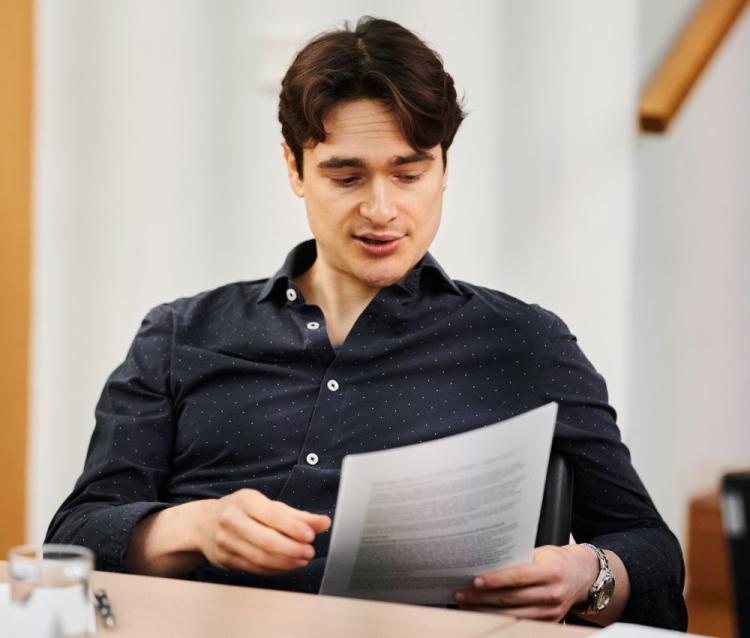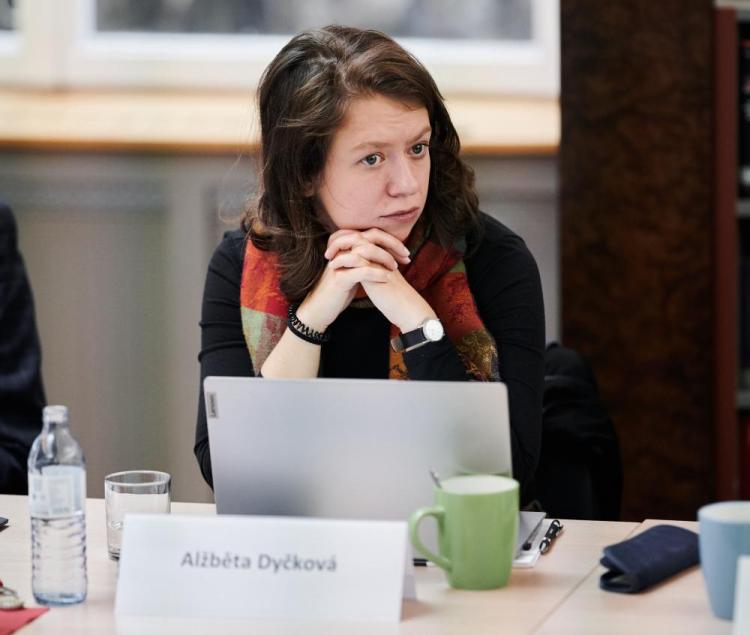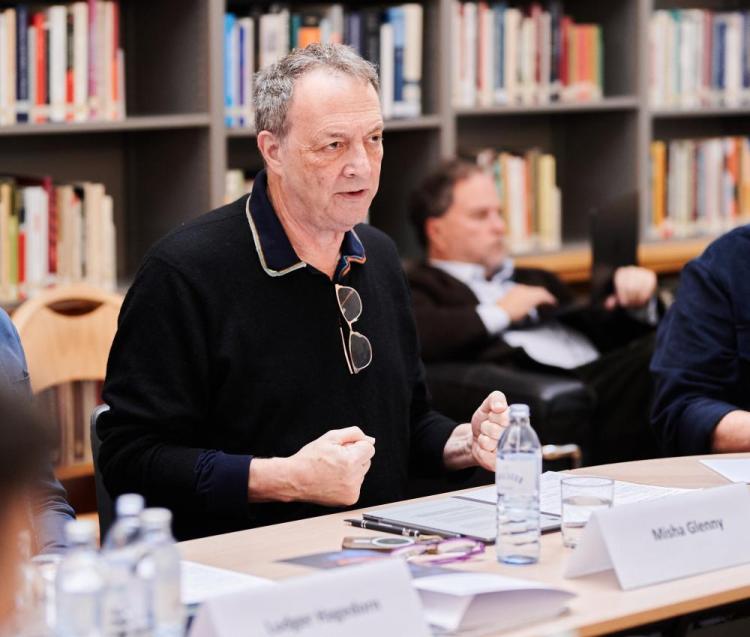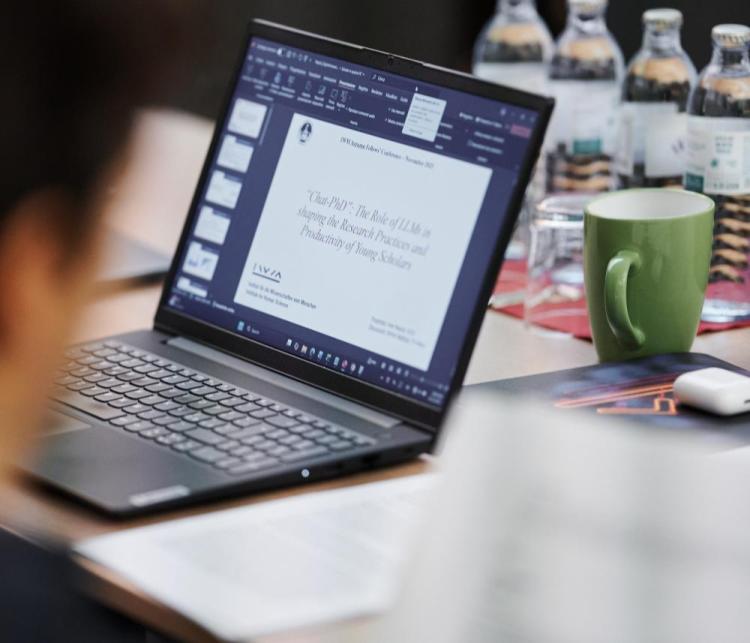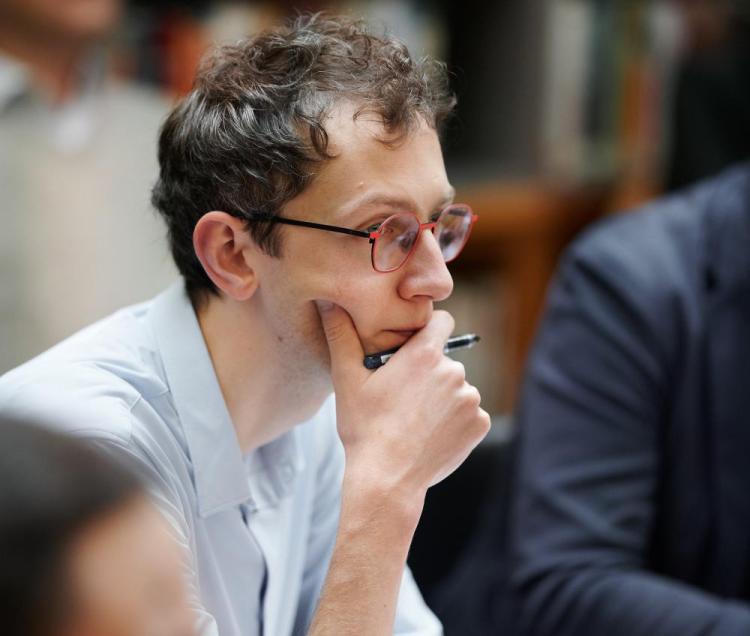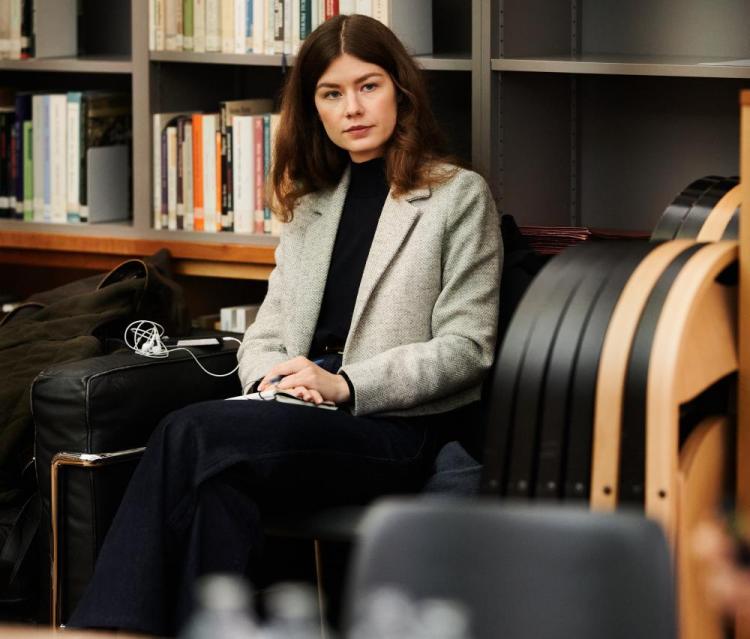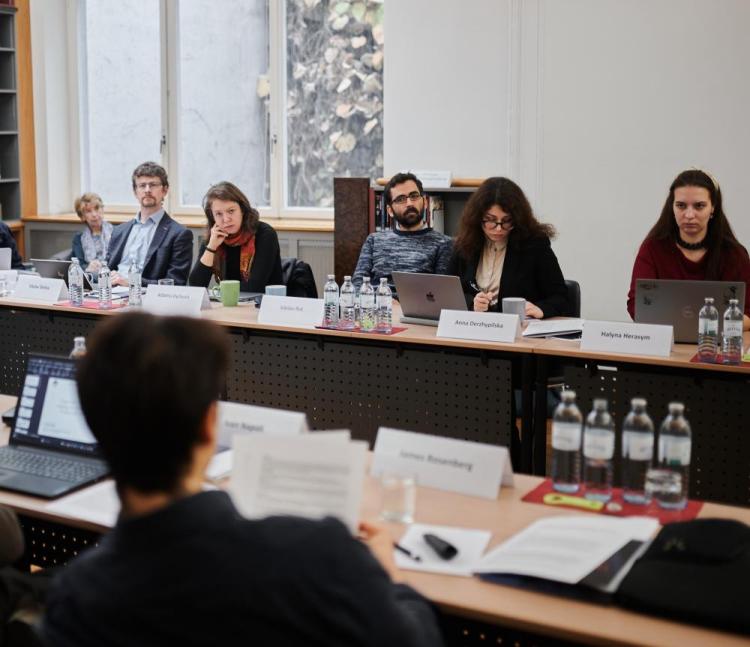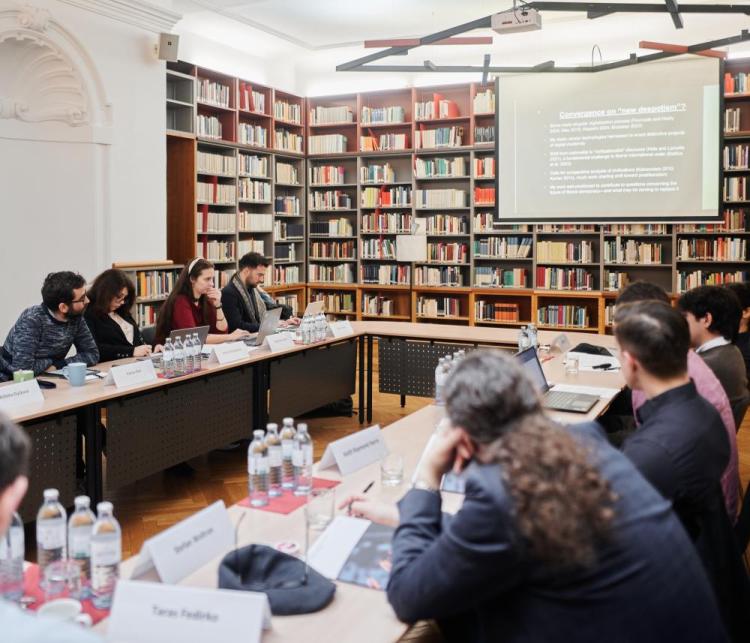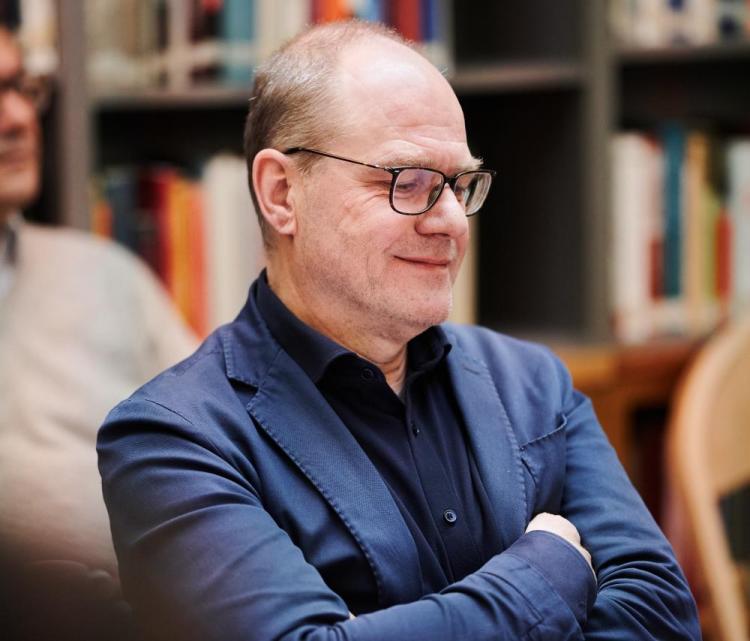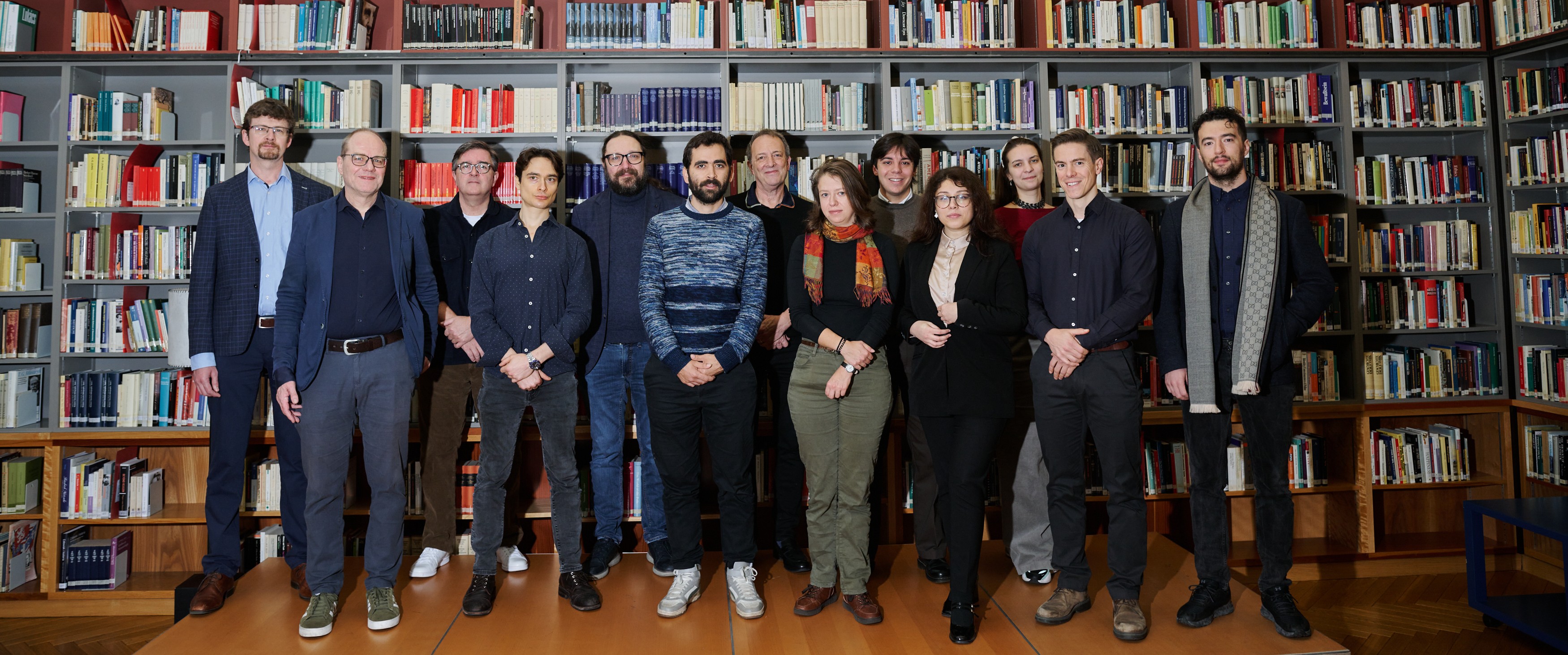 On 12 November, the IWM hosted the autumn edition of its biannual Fellows' Conference, organized by visiting fellows Halyna Herasym and Anna Derzhypilska. A cornerstone of intellectual life at the Institute since its inception, it provides an occasion for emerging researchers to present and discuss their work with both peers and established scholars from the IWM and wider academic community in Vienna. Below, we present a collage of short quotes and impressions from this year's participants and their presentations, assembled by Guest of the Institute and conference participant Yannis Ktenas.
On 12 November, the IWM hosted the autumn edition of its biannual Fellows' Conference, organized by visiting fellows Halyna Herasym and Anna Derzhypilska. A cornerstone of intellectual life at the Institute since its inception, it provides an occasion for emerging researchers to present and discuss their work with both peers and established scholars from the IWM and wider academic community in Vienna. Below, we present a collage of short quotes and impressions from this year's participants and their presentations, assembled by Guest of the Institute and conference participant Yannis Ktenas.
This conference has always been one of the most vibrant formats in the daily life of the IWM. Take as much as you can from the discussion and comments of your colleagues—this intellectual exchange could prove particularly valuable in shaping the direction of your research. - IWM Rector Misha Glenny
Morning Panel: “Digital Humanism: Prospects and Provocations”
Should they become mandatory, digital technologies such as the European Digital Identity Wallet could quite easily become weaponized in order to build a digital fortress Europe. - James Rosenberg, Digital Humanism fellow
LLMs can prove to be either an equalizer that increases scientific productivity or a source of homogenization in academic production. - Ivan Napoli, Digital Humanism fellow, on the impact of large language models on the process of knowledge creation in doctoral research
Midday Panel: “Critique in Times of Crisis: Metaphysics, Epistemology, and the Practice of Dissent”
It’s fascinating how similar Adorno’s and Patočka’s insights on the death of metaphysics—but also on the persistence of some kind of metaphysical experience are, especially given the fact that they developed these insights independently, without interacting. - Alžběta Dyčková, Jan Patočka fellow
Our current condition urges us to reflect upon some new sort of objectivity, without forgetting what philosophers such as Michel Foucault or Judith Butler have taught us. - Yannis Ktenas, Guest of the Institute
Czechoslovak dissidence of the 1970s and 1980s took the form of a hermeneutics of the self, or even a technology of the self, in Foucault’s sense of the term: a way of conducting life but also (re)shaping individuality and subjectivity. - Vaclav Rut, Jan Patočka fellow
Afternoon Panel: “The Human Face of Political Violence: From Soviet Populism to Modern Russian War and Repression”
Filtration practices may appear to sit in a legal “black hole,” absent from the Geneva Conventions and under-defined international law. Yet, existing legal norms give us the tools to name it, close this gap, and prosecute those responsible. Reframing this dangerous grey zone as a constellation of crimes rather than a legal lacuna is a political duty. — Anna Derzhypilska, Lesia Ukrainka Fellow, on Russia’s violent techniques of forced allegiance in occupied Ukrainian territory
Digital expressions of mourning, through their relational character, can prove to be an extremely empowering technology for people expressing grief and putting forward alternative forms of commemoration.- Halyna Herasym, Lesia Ukraїnka fellow, about online narratives of grief in wartime Ukraine
Closing Remarks
The conference, as a whole, attended to grasp, through different academic disciplines and intellectual traditions, elements of the new, contemporary human condition. - IWM Senior Research Fellow Taras Fedirko
The overall quality of the presentations that was strikingly impressive. There are always some very good presentations, but it rarely happens that all papers are so strong. Moreover, the participation of so many IWM visiting ellows in the audience was very important. It was also their interest and their contributions that made this a highly inspiring day of academic exchange. - IWM Permanent Fellow Ludger Hagedorn
Photography by Valerie Maltseva
